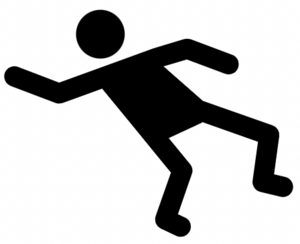Unknown Facts About Dementia Fall Risk
Table of ContentsThe smart Trick of Dementia Fall Risk That Nobody is Talking AboutThe Facts About Dementia Fall Risk UncoveredNot known Details About Dementia Fall Risk 7 Easy Facts About Dementia Fall Risk ExplainedGetting My Dementia Fall Risk To Work
Make sure that there is a designated location in your medical charting system where staff can document/reference ratings and document pertinent notes connected to drop prevention. The Johns Hopkins Loss Danger Assessment Device is one of many devices your personnel can make use of to help protect against damaging clinical events.Patient drops in health centers prevail and devastating negative events that continue despite years of effort to lessen them. Improving communication across the analyzing nurse, treatment team, individual, and patient's most entailed loved ones may reinforce fall avoidance efforts. A group at Brigham and Women's Medical facility in Boston, Massachusetts, sought to develop a standard autumn avoidance program that centered around boosted communication and person and family engagement.

The technology team stressed that successful application depends on patient and personnel buy-in, assimilation of the program into existing process, and integrity to program processes. The team noted that they are facing how to make certain continuity in program implementation throughout durations of situation. During the COVID-19 pandemic, as an example, a rise in inpatient falls was related to restrictions in person interaction in addition to restrictions on visitation.
Getting The Dementia Fall Risk To Work
These cases are typically considered preventable. To execute the intervention, organizations need the following: Access to Autumn pointers sources Autumn ideas training and re-training for nursing and non-nursing personnel, consisting of brand-new registered nurses Nursing workflows that enable person and family members involvement to conduct the falls assessment, ensure use of the avoidance strategy, and carry out patient-level audits.
The results can be very detrimental, frequently accelerating client decline and creating longer hospital stays. One study estimated keeps boosted an additional 12 in-patient days after a patient fall. The Fall TIPS Program is based upon interesting individuals and their family/loved ones across 3 primary processes: analysis, customized preventative interventions, and auditing to make sure that clients are engaged in the three-step loss prevention process.
The person evaluation is based on the Morse Autumn Scale, which is a confirmed fall threat analysis tool for in-patient healthcare facility settings. The range includes the 6 most typical reasons individuals in healthcare facilities fall: the individual fall background, high-risk conditions (consisting of polypharmacy), use IVs and various other external tools, mental condition, stride, and flexibility.
Each why not try this out danger variable relate to several actionable evidence-based treatments. The nurse produces a strategy that incorporates the treatments and is noticeable to the care group, client, and family members on a laminated poster or printed visual help. Registered nurses develop the strategy while satisfying with the person and the client's family members.
Some Known Questions About Dementia Fall Risk.
The poster acts as an interaction device with other members of the client's care group. Dementia Fall Risk. The audit element of the program consists of evaluating the patient's knowledge of their danger aspects and avoidance plan at the system and health center degrees. Nurse champions conduct a minimum of five individual meetings a month with individuals and their households to check for understanding of the fall avoidance strategy

An approximated 30% of these drops outcome in injuries, which can range in severity. Unlike various other unfavorable occasions that need a standard medical reaction, loss prevention depends very on the requirements of the patient.
Dementia Fall Risk for Beginners

Based upon auditing results, one site had 86% compliance and two sites had over 95% conformity. A cost-benefit analysis of the Autumn suggestions program in 8 medical facilities approximated that the program cost $0.88 per patient to carry out and resulted in cost savings of $8,500 per 1000 patient-days in direct costs connected to the prevention of 567 tips over 3 years and 8 months.
According to the development team, organizations thinking about implementing the program needs image source to carry out a preparedness analysis and falls avoidance gaps evaluation. 8 In addition, organizations should guarantee the necessary framework and process for execution and establish an execution plan. If one exists, the organization's Loss Prevention Task Force should be associated with planning.
Dementia Fall Risk Things To Know Before You Get This
To start, companies need to ensure conclusion of training components by registered nurses and nursing aides - Dementia Fall Risk. Medical facility team ought to evaluate, based upon the requirements of a healthcare facility, whether to make use of a digital wellness document hard copy or paper version of the autumn prevention plan. Executing groups should hire and train nurse champs and establish processes for auditing and reporting on autumn information
Team need to be associated with the process of upgrading the process to engage individuals and family in the evaluation and prevention plan process. Solution must be in location to ensure that systems can recognize why an autumn occurred and remediate the reason. Extra especially, registered nurses need to have channels to give recurring responses to both personnel and device management so they can find more information change and enhance fall prevention workflows and communicate systemic issues.
Comments on “Dementia Fall Risk Can Be Fun For Everyone”